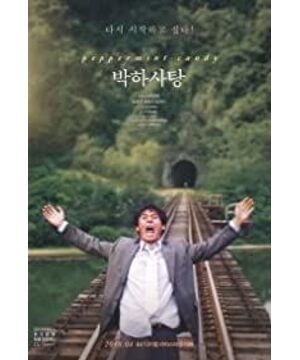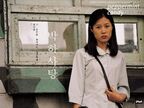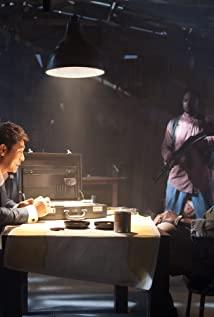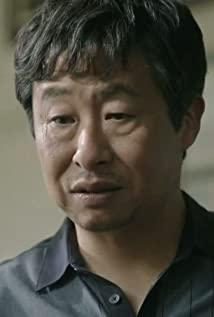A good movie, as I understand it, is used to tell life, and the director is just a bystander. A good movie is like a prism, no matter how dazzling and clear it is, how unrealistic the story is, and how bizarre the scene is, the final reflection will be the reflection and exploration of the essence of life. Sometimes it throws you some questions. , in a grotesque, gave the answer. More often, it's silent, just throwing questions.
"Mints" belongs to the latter, a silent film. Why call it a silent movie? The records and narratives of "Mints" are silent, like a sample of life randomly taken from a bookshelf, and then slowly opened. The middle-aged protagonist, Kim Yong-ho, acted insane as soon as he came up. After making a big noise at the party of his former friends, he climbed the train viaduct and faced the whistling train alone... The plot after that is like a person before death. The flashes of time, with fragmented memories, bring the audience back to the protagonist's past.
The film jumps back frame by frame, and the man's past experiences and moods emerge little by little. During the whole process, the director seems to just recount the story without any position, and the true meaning behind it is telling himself aloud.
The characters in most movies are deepened step by step with the linear development of the story, but in this film, because of the flashback technique, the image of the male protagonist is "weakened" again and again in the memory. His character was flamboyant from the very beginning. He was crazy and tragic in the gathering of friends. He was a man full of tragedies. In the process of going back slowly, his violence and weakness gradually showed, and he was gradually exposed. Cut, it is only at the end of the credits that his initial purity is revealed.
Imagine that if this film adopts a normal narrative technique, it tells how the male protagonist chooses the wrong path on the track of fate step by step, and eventually leads to tragedy. It seems that when the male protagonist faces the train and ends his life at the end, he will be more helpful to the audience. Shocking and exciting. But I think that this approach will destroy the inherent philosophical charm of the whole film. It is precisely the use of such flashbacks to tell the eternal theme that life can never be flashed back, which fits the tragic character of the characters and the theme of the film itself.
Trains and railway tracks are a major theme in this film, and they are often used as the background of the scene inadvertently, driving forward, and the transition shots of each memory in the movie are the slowly advancing trains and railway tracks. The train is not only the tool the male protagonist chooses to use to end his own life, but also a metaphor for the irreversibility of the male protagonist and each of us. Life is like a train entering a station. The beauty and pain of life happen to come from its one-way mobility. After leaving the station, you never know the next station, nor can you go back to the previous station. At the last moment when the male protagonist faced the train crashing head-on, he shouted out that he wanted to start over again. I deeply understand that regret is beyond my grasp, and I also deeply know the truth that life cannot be restarted.
The metaphors of trains and rails and the flashbacks of this film are in contrast to each other. The trains in the film continue to drive into the distance with their one-way nature. The development of the story and the protagonist's appeal to fate are constantly moving backwards. The seemingly conflicting directions raise a substantive question about the meaning of time itself, when both directions reach their end, the train arrives at the station, and the whole story goes back to the very beginning of the day, and everything seems to coincide, At the end of the film, the male protagonist stares blankly at the viaduct where he will commit suicide by standing in a daze, like a sign of fate, the story becomes a link, and time itself becomes an ouroboros, just like the track is always connected to the track.
The image of mint candy also runs through the whole film. The male protagonist visits the mints carried by his dying first love. The male protagonist reluctantly ate the mints fed to him by his little lover. The mints scattered all over the place in the panic of the gathering... Until the end, the meaning of the mints, in the first love The moment it was handed to him, it was revealed like nothing. At that time, he still longed for a camera in the future to take pictures of the nameless wildflowers in front of him, and he was full of the girl in front of him, but later, fate seemed to He changed his course, he didn't like mints so much, and he didn't want to take pictures so much, and even that girl became less and less qualified to love. Until the end, he could only betray the one that the girl bought for him with money many years ago. The camera, I can only watch the film by myself and burst into tears.
In the process of rushing forward in life, he seemed to have lost something, and he seemed to be slowly abandoned by life, forgetting the original taste of that mint. Perhaps throughout the story, mints herald the freshness of people's initial pursuit of things, and when we put it in our mouths and slowly melt away, will the original and most primitive longings remain fresh?
The tragedy of the protagonist in the film has its inevitability. In the whole recalling process of the film, how the male protagonist was abandoned by his partner and how he fell into the securities, these incentives that led to his final loss of soul were all omitted by one sentence. Experience is not a template for life, so the director focuses on the hero's decision moments and character tragedies. The audience knows how he was thrown into the battlefield, how he chose the wrong lover... This part is inevitable, there are many moments of derailment in life, and when he despises the happiness he chooses at the moment, he uses violence to cover up When he is weak and let go of his true love because of his inferiority, this is the reason he chooses again and again, and it is also the result that his character is destined to bring.
In this process from the tragic effect to the cause, I have no pity for such a character. As I said before, he is just a sample of life that the director opened on his bookshelf. Sadly, the road of life is like an intricate train line, each direction has its final destination.
These are some of my responses to the question of silence. .
View more about Peppermint Candy reviews











